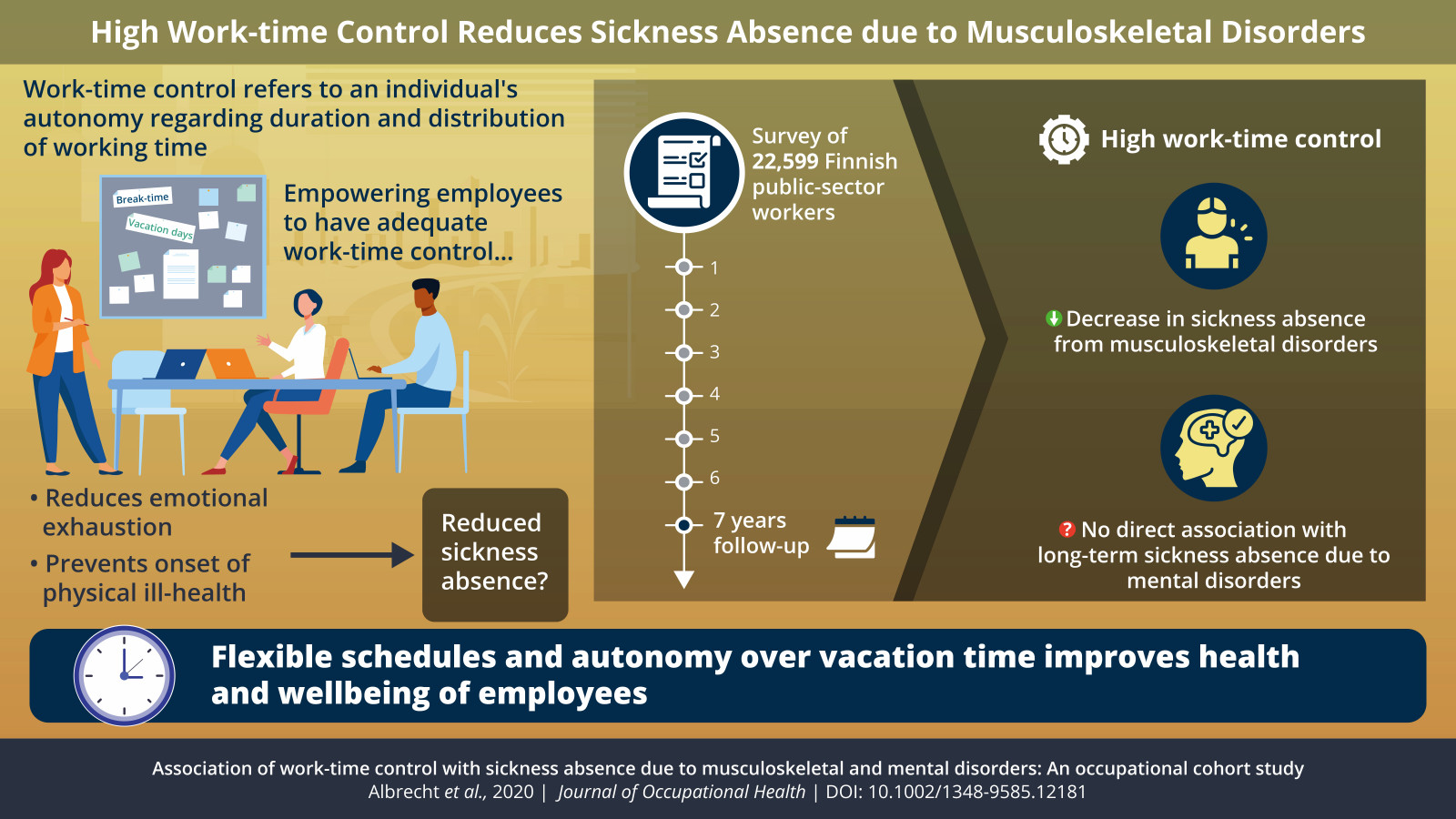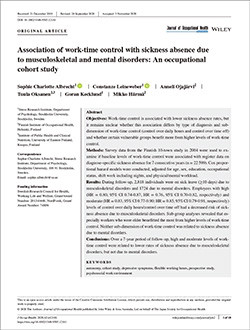#0003 High Levels of Work-time Control Reduce Sickness Absence due to Musculoskeletal Disorders

Importance for empowering employees
to have adequate work-time control
Sickness absence (SA) can have profound negative effects on a person’s wellbeing and is considered a predictor of morbidity and mortality when occurring over an extended period. Additionally, SA creates a substantial financial burden on national healthcare systems and causes productivity losses in organizations. To reduce costs and ensure unhindered productivity, organizations thus need to adapt policies that ensure good health of workers. One such approach is to empower employees to have adequate work-time control, whereby individuals have autonomy to decide the duration and distribution of their work time. Studies suggest this reduces emotional exhaustion in employees and prevents the onset of physical ill-health.

Creating a workplace culture where flexible schedules, autonomy over vacation time, and taking breaks
However, research on the interaction between work-time control methods (viz., control over daily hours vs. control over time off) and specific sickness-related absence is limited. To address this gap, a team of researchers from Sweden and Finland investigated whether high levels of work-time control decreased the risk for SA caused by musculoskeletal or mental disorders in the long-term. They also examined whether certain groups which were vulnerable to SA would benefit from exercising work-time control.
Their survey of 22,599 Finnish employees, followed up for seven consecutive years, revealed that higher levels of work-time control were associated with a decrease in SA from musculoskeletal disorders. Such an association, however, did not exist between work-time control and SA from mental disorders, contrary to previous research.
Employees aged 40 years and above benefitted the most from control over their daily hours and time off and had a lesser risk of SA induced by musculoskeletal disorders. However, such control might also help younger employees in the long run and reduce their risk of developing similar disorders.
These findings will help employers create a workplace culture where flexible schedules, autonomy over vacation time, and taking breaks when needed are encouraged to ensure employee health and wellbeing.
Link to the original journal article:
https://doi.org/10.1002/1348-9585.12181
Title of this article:
Association of work-time control with sickness absence due to musculoskeletal and mental disorders: An occupational cohort study
Authors:
Sophie Charlotte Albrecht, Constanze Leineweber, Anneli Ojajärvi, Tuula Oksanen, Goran Kecklund, Mikko Härmä





